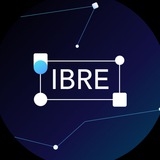Exciting news! The Institute of Bioinformatics Research and Education (IBRE) is thrilled to announce its first event, the Bioinformatics Hackathon'2023!
The hackathon will take place in Yerevan, Armenia from 11-13 August 2023. We welcome programmers, biologists, medical doctors, and mathematicians with a keen interest in bioinformatics and biostatistics to join us. During the 48-hour event, participants will have the opportunity to collaborate with their teams and solve real challenges in biological data analysis.
Apply by June 15 at https://bioinf.institute/hack.
See you in Yerevan!
The hackathon will take place in Yerevan, Armenia from 11-13 August 2023. We welcome programmers, biologists, medical doctors, and mathematicians with a keen interest in bioinformatics and biostatistics to join us. During the 48-hour event, participants will have the opportunity to collaborate with their teams and solve real challenges in biological data analysis.
Apply by June 15 at https://bioinf.institute/hack.
See you in Yerevan!
Our first preprint is out at bioRxiv!
The work continues our recent efforts to find an optimal strategy for NGS data analysis in medical genetics. Following up on our analysis of pipelines for variant calling (read our previous work here), we present an analysis of the impact of adapters on the accuracy of genetic variant identification.
We show that most of the most widely used methods, such as DeepVariant or GATK-HC, do not show any significant dependence on adapter removal. However, some of the machine learning-based tools show greater sensitivity to the presence of adapters.
We suggest that adapter trimming is not necessary when calling germline short variants in single-sample mode. However, data preprocessing has to be carefully considered when building predictive models for bioinformatics.
The work continues our recent efforts to find an optimal strategy for NGS data analysis in medical genetics. Following up on our analysis of pipelines for variant calling (read our previous work here), we present an analysis of the impact of adapters on the accuracy of genetic variant identification.
We show that most of the most widely used methods, such as DeepVariant or GATK-HC, do not show any significant dependence on adapter removal. However, some of the machine learning-based tools show greater sensitivity to the presence of adapters.
We suggest that adapter trimming is not necessary when calling germline short variants in single-sample mode. However, data preprocessing has to be carefully considered when building predictive models for bioinformatics.
bioRxiv
Negligible effects of read trimming on the accuracy of germline short variant calling in the human genome
Next generation sequencing (NGS) has become a standard tool in the molecular diagnostics of Mendelian disease, and the precision of such diagnostics is greatly affected by the accuracy of variant calling from sequencing data. Recently, we have made a comprehensive…
We are excited to announce the first online session of the IBRE Bioinformatics Club! It starts on May 25th, mark your calendars.
Bioinformatics Club is a series of online meetings dedicated to the discussion of key topics of modern computational biology and bioinformatics. Our goal is to provide a platform for both skilled bioinformaticians and newcomers to talk about best practices in data analysis and interpretation of results.
During the first session, we will discuss methods for efficient and reproducible research, including construction of bioinformatic pipelines, environments, documentation, and much more!
Meetings will be held online via Zoom every two weeks on Thursday evenings at 6 pm CET. The first meeting is scheduled for 25 May 2023. To attend the seminars, please register.
Bioinformatics Club is a series of online meetings dedicated to the discussion of key topics of modern computational biology and bioinformatics. Our goal is to provide a platform for both skilled bioinformaticians and newcomers to talk about best practices in data analysis and interpretation of results.
During the first session, we will discuss methods for efficient and reproducible research, including construction of bioinformatic pipelines, environments, documentation, and much more!
Meetings will be held online via Zoom every two weeks on Thursday evenings at 6 pm CET. The first meeting is scheduled for 25 May 2023. To attend the seminars, please register.
The first online meeting of the Bioinformatics Discussion Club starts soon today: https://bioinf.institute/bioinfoclub
Hope to see you there!
Hope to see you there!
bioinf.institute
IBRE Bioinformatics Club
Seminars dedicated to discussing bioinformatics
